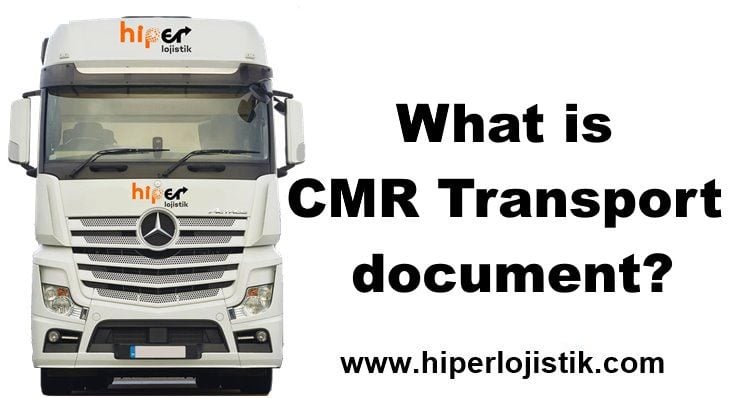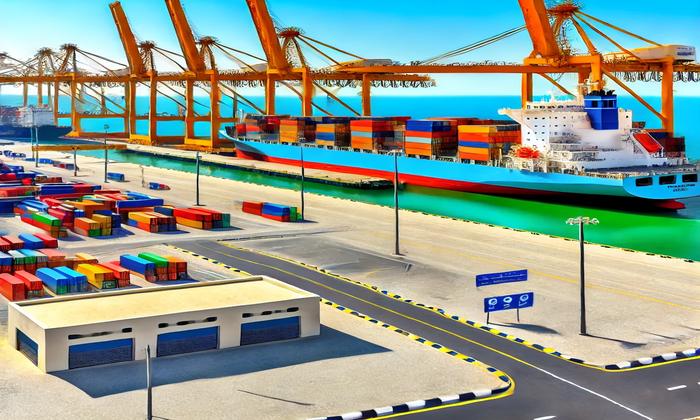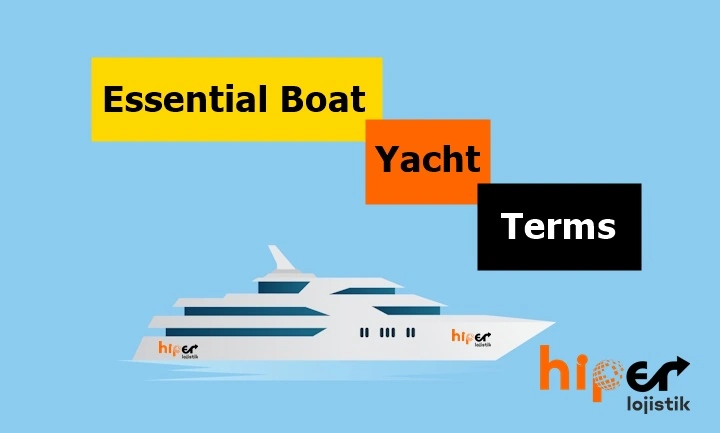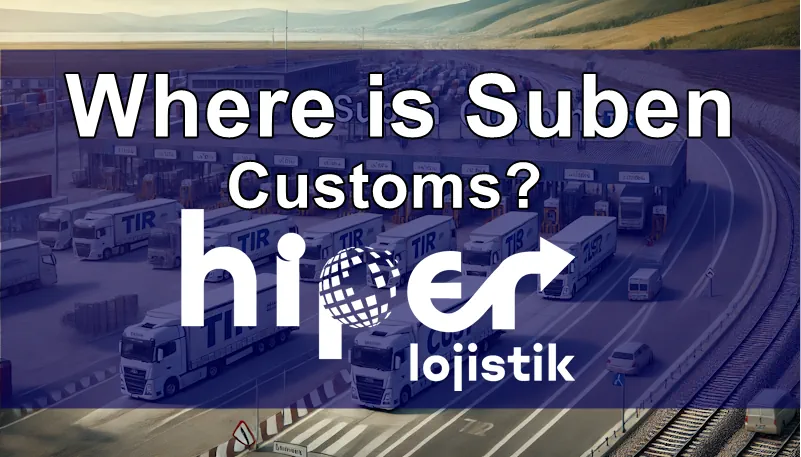
Glossary of International Trade Terms
International trade refers to the exchange of goods and services between countries, playing a crucial role in the global economy. The various terms used in this process are vital for ensuring that commercial transactions are conducted accurately and to prevent misunderstandings between the parties involved. An international trade glossary provides clear and concise definitions of frequently used terms in import and export operations, aiding in a smoother trade process.
For instance, an exporter is the party that sends goods abroad, while an importer is the party that purchases goods from foreign markets. The bill of lading is a legal document used during transportation, outlining the agreement between the shipper and the carrier regarding the details of the goods being transported. Customs is the official authority responsible for regulating the import and export of goods, ensuring compliance with laws and collecting necessary duties.
An international trade glossary serves as a valuable resource for beginners, students, and professionals in the industry. Understanding these terms helps improve efficiency and security in international trade, making it essential for establishing successful commercial relationships.
A – International Trade Terms Starting with ‘A’
Agent:
An agent is a representative acting on behalf of a specific company in export or import operations, providing services such as transportation, warehousing, or customs procedures. The agent ensures that all procedures are correctly carried out and that operations are completed smoothly.
Appeal:
An appeal is a formal request to reconsider a decision, especially in customs or other trade processes. For instance, if an importer or exporter believes that a decision made by customs is incorrect, they may file an appeal. This process allows for a reassessment and correction of any errors.
Anti-Dumping Duty:
An anti-dumping duty is an additional tax imposed to prevent imported goods from being sold at unfairly low prices, which could harm domestic producers. This duty aims to prevent unfair competition and ensure that importers operate under fair market conditions.
B – International Trade Terms Starting with ‘B’
Bill of Lading:
A bill of lading is a legal document issued between the shipper and the carrier, detailing the type, quantity, and destination of the goods being transported. It serves as a receipt of the shipment and outlines the terms of the delivery.
Bulk Items:
Bulk items are goods transported without packaging and in large quantities, such as grain, coal, or chemicals. This type of transportation, often in large containers, is cost-effective and improves efficiency in shipping.
By Order Of:
The phrase “by order of” is commonly used in banking and international trade documents to indicate that goods are being transported or delivered at the request of a specific individual or organization. It is frequently used in letters of credit and international trade contracts.
Bartering:
Bartering refers to the exchange of goods or services between two parties without the use of money. It is particularly popular in countries with limited foreign exchange reserves or where monetary trade is difficult.
C – International Trade Terms Starting with ‘C’
Consignor:
A consignor is the party responsible for sending goods in a shipping process. They hand over the goods to the carrier and prepare the necessary documentation for shipment. The consignor plays a key role at the beginning of the transportation process.
Consignee:
A consignee is the recipient of the goods at the destination point. They take ownership of the goods upon delivery and perform the necessary inspections before receiving the shipment. The consignee is the party to whom the ownership of the goods is transferred.
Customs:
Customs is a government authority responsible for regulating imports and exports, ensuring that goods comply with laws, and collecting necessary taxes and duties. Customs also ensures the safe movement of goods across international borders.
D – International Trade Terms Starting with ‘D’
Declaration:
A declaration is an official statement submitted to customs, detailing information about the type, quantity, and value of goods being imported or exported. A declaration is required for accurate customs processing and tax calculation.
Demurrage:
Demurrage refers to the fee payable when a shipping container or transportation vehicle is delayed beyond the allotted time for loading or unloading. It is typically charged by the carrier when there is an extended wait time.
Durable Goods:
Durable goods are products with a long usage life, such as appliances and furniture, which are frequently traded in international markets. Their import and export significantly contribute to a nation’s economy.
E – International Trade Terms Starting with ‘E’
Exporter:
An exporter is an individual or company that ships goods to another country. The exporter is responsible for managing the sales, preparing the necessary documents, and organizing the transportation and customs processes.
En Route:
The term en route indicates that goods are on their way to their destination but have not yet arrived. It allows both the shipper and receiver to monitor the shipment status.
Export Without Returns:
Export without returns refers to the export of goods without payment, often used for donations, gifts, or promotional items. This type of export does not affect the foreign currency reserves of the exporting country.
F – International Trade Terms Starting with ‘F’
Freight Charge:
A freight charge is the fee paid to a carrier for the transportation of goods. It varies depending on the type of goods, mode of transport, distance, and other conditions, and it is an important factor in determining the overall cost of goods.
Full Container Load (FCL):
A full container load means that a container is fully loaded by a single shipper. This method is preferred for transporting large quantities of goods, as it ensures safe handling during transit.
Foreign Trade Corporation:
A foreign trade corporation is a large-scale company involved in export and import operations. These corporations manage international trade for multiple countries and increase trade volumes by providing goods and services worldwide.
G – International Trade Terms Starting with ‘G’
Groupage:
Groupage refers to consolidating shipments from multiple customers into one transport vehicle, allowing for reduced shipping costs and efficient use of vehicle capacity. It is often used to make transportation more economical for small-volume shipments.
Transport Loading Gauge (Gabari):
Gabari refers to the maximum height, width, and length allowed for transport vehicles. Goods transported must conform to these dimensions to ensure road safety. Special permits are required for transporting goods that exceed these limits.
Customs (Gümrük):
Customs is an official authority regulating the import and export of goods, ensuring that laws are followed and taxes are collected. Customs oversees the lawful entry and exit of goods from a country.
H – International Trade Terms Starting with ‘H’
House Bill of Lading:
A house bill of lading is issued by a freight forwarder and provides details of the cargo being transported. It is commonly used in consolidated cargo shipments and covers each individual item being shipped.
Handling Charge:
A handling charge is the cost of moving goods into and out of storage, including loading, unloading, stacking, and arranging. It includes various logistical tasks to ensure the safe handling of goods.
Harmonized System Code (HS Code):
An HS code is a six-digit code used to classify goods in international trade. It helps standardize product identification worldwide and facilitates customs procedures.
I – International Trade Terms Starting with ‘I’
Importer:
An importer is an individual or company that purchases goods or services from another country. The importer is responsible for quality control, ensuring compliance with local regulations, and completing customs procedures.
Issuing Bank:
The issuing bank is the bank that issues a letter of credit at the importer’s request, providing a payment guarantee to the seller. This bank is crucial for financing the import process and building trust between trading parties.
Identical Goods:
Identical goods refer to items that are physically the same, with no differences in characteristics or quality. This term is used when assessing customs duties and determining market value.
J – International Trade Terms Starting with ‘J’
Joint Cargo:
Joint cargo refers to goods from multiple shippers that are consolidated and transported in the same shipment. This method helps reduce transportation costs and is typically carried out through groupage.
Just In Time (JIT):
Just in time (JIT) is a logistics strategy where products are delivered at the exact time they are needed, minimizing inventory costs. It ensures that production processes run smoothly without unnecessary stock buildup.
K – International Trade Terms Starting with ‘K’
Multimodal Transport (Karma Taşımacılık):
Multimodal transport involves using multiple modes of transportation (e.g., sea and road) to complete a shipment. It offers flexibility and cost advantages in logistics operations, particularly for long-distance shipments.
Door to Door (Kapıdan Kapıya Teslim):
Door to door delivery refers to the direct transport of goods from the supplier’s location to the buyer’s location. This method enhances customer satisfaction and includes all steps of the transport process.
Quota (Kota):
A quota is a limit imposed on the import or export of specific goods. It is used as a trade policy tool to control the volume of goods entering or leaving a country, often to protect local industries.
L – International Trade Terms Starting with ‘L’
Liner:
A liner is a ship that operates on a regular schedule between specified ports. Liners are commonly used for container transport and provide reliable shipping services along established routes.
Letter of Carriage (İrsaliye):
A letter of carriage is a document that provides details about goods being transported. It is used during transit to verify and document the movement of goods from one location to another.
Less Container Load (LCL):
A less container load (LCL) refers to a container that is not fully loaded by a single shipper, with goods from multiple shippers consolidated within it. This method is cost-effective for small shipments.
M – International Trade Terms Starting with ‘M’
Mother Vessel:
A mother vessel is a large container ship that carries goods from major ports to transshipment ports. From these ports, smaller feeder vessels transport the goods to their final destinations.
Movement Certificate:
A movement certificate is a document that certifies goods are eligible for free movement under a specific customs union or trade agreement. It helps importers benefit from reduced or exempted customs duties.
Multimodal Transport:
Multimodal transport refers to the use of multiple transportation methods, such as road, sea, and rail, within a single shipment. It provides flexibility and cost savings for long-distance and complex logistics operations.
N – International Trade Terms Starting with ‘N’
Notify:
To notify means to inform a specific party or entity about the arrival of goods at their destination. The notify party is responsible for taking delivery and managing the necessary logistics at the destination.
Non-Freight:
Non-freight means that a specific cargo is exempt from transportation charges. This is applicable when the shipping fee is waived or covered by another entity.
Notify Party:
The notify party is the individual or entity to be informed upon the arrival of goods at their destination. This party is typically responsible for arranging the receipt of goods.
O – International Trade Terms Starting with ‘O’
Offer:
An offer is a written or verbal proposal made by a seller to a buyer, detailing the price and terms for supplying goods or services. It is often the first step in a commercial agreement.
Obsolete Goods:
Obsolete goods are products that are outdated or no longer in demand. Selling such goods can be difficult, and they often increase inventory costs. In international trade, they may be sold at a discount or disposed of.
Original Document:
An original document is the primary, legally valid version of a document. In international trade, original copies of bills of lading, invoices, and certificates are required to validate transactions.
P – International Trade Terms Starting with ‘P’
Partial:
Partial refers to the shipment of only a portion of goods or a part of an order. This term is often used in relation to payment or shipment, indicating that goods can be delivered or paid for in parts.
Proforma Invoice:
A proforma invoice is a preliminary invoice issued to a buyer before the actual shipment of goods. It details the cost, quantity, and description of the goods being sold and allows the buyer to estimate expenses.
Packing List:
A packing list is a document that lists the contents, weight, and details of packages being shipped. It plays an important role in transportation and customs clearance, ensuring goods are delivered accurately.
Q – International Trade Terms Starting with ‘Q’
Quota:
A quota is a restriction on the quantity of goods that can be imported or exported. It is used by governments to regulate trade volumes, protect local industries, and control the balance of trade.
R – International Trade Terms Starting with ‘R’
Release:
Release refers to the permission granted for a transport vehicle to leave a customs or waiting area. It is typically given after customs clearance during import procedures, allowing goods to be delivered.
Roll On Roll Off (Ro-Ro):
Roll on roll off (Ro-Ro) refers to a type of sea transport where vehicles and cargo are driven onto and off a ship. This method is particularly efficient for transporting cars and heavy vehicles.
Revocation:
Revocation is the cancellation of a trade agreement or contract by one of the parties. It usually occurs due to a breach of terms or mutual consent to terminate the agreement.
S – International Trade Terms Starting with ‘S’
Settlement Date:
The settlement date is the deadline for making a payment in exchange for goods or services. This date is agreed upon by both parties and ensures timely payments in trade transactions.
Stamp Tax:
A stamp tax is a tax levied on certain commercial documents as they are issued. This tax gives documents legal validity and is required for trade contracts, invoices, and financial agreements.
Storage:
Storage refers to the process of securely keeping goods for a specific period before they are delivered. It is a key component of logistics, with associated costs and special conditions depending on the type of goods.
T – International Trade Terms Starting with ‘T’
Tariff:
A tariff is a tax imposed on goods when they are imported or exported. It is used to protect a nation’s economy, manage trade balances, and influence the cost of imported and exported goods.
Terms of Payment:
Terms of payment refer to the conditions agreed upon by both parties for the payment of goods or services. These terms dictate how, when, and under what circumstances payments are made in trade transactions.
Transshipment:
Transshipment involves transferring goods from one carrier to another during their journey to the final destination. It is commonly used in international shipping when goods need to change transportation modes.
U – International Trade Terms Starting with ‘U’
Underwriter:
An underwriter is an entity or person that guarantees a financial risk by issuing insurance. In international trade, underwriters insure the goods being shipped against potential damage or loss.
Unit Price:
The unit price is the cost of a single unit of a product. This term is crucial in trade agreements, as it defines the value of each item and helps determine the total transaction value.
Uniform Customs and Practice (UCP):
Uniform customs and practice (UCP) is a set of rules that standardize the issuance of letters of credit. It provides guidelines to ensure that commercial documents are properly processed and legally valid in international trade.
V – International Trade Terms Starting with ‘V’
Vessel Name:
The vessel name is the name of the ship carrying the cargo. This information is included in shipping documents to track the cargo and identify the vessel responsible for transportation.
Volume:
Volume refers to the amount of space occupied by cargo. It is an important factor in shipping, as it affects loading capacity and helps determine the freight charges.
Value Added Tax (VAT):
Value added tax (VAT) is a tax applied to the value of goods imported. It is payable by the importer and affects the total cost of importing goods into a country.
W – International Trade Terms Starting with ‘W’
Warehouse Receipt:
A warehouse receipt is a document indicating that goods have been received and stored in a warehouse. It is used to prove ownership and manage the storage of goods in international trade.
Waybill:
A waybill is a document that contains information about the sender, recipient, and the goods being transported. It is used during transit to verify the shipment’s details and ensure accurate delivery.
Wharfage:
Wharfage is a fee charged for the use of a wharf when loading or unloading cargo. It is collected by the port authority and covers the cost of using port facilities.
Z – International Trade Terms Starting with ‘Z’
Hazardous Material (Zararlı Madde):
Hazardous material refers to goods that pose risks to health, safety, or the environment during storage or transportation. Such materials must be specially packaged, labeled, and transported according to specific regulations.
Supplementary Policy
A supplementary policy is an amendment to an insurance policy that extends or restricts its coverage. It is crucial for maintaining the validity and scope of an insurance contract.
Mandatory Route
A mandatory route is a designated path that must be followed when transporting certain goods, often imposed for safety reasons. It is common in the transport of hazardous materials to minimize risks.
Just In Time (JIT)
Just in time (JIT) is a strategy that aims to reduce inventory costs by delivering goods exactly when they are needed. This approach helps prevent excessive stock and reduces logistics costs.






